By Emmanuel Ehinmero and Ijeoma Okereke*
1992’s long vacation was an eye-opening period for our small group at the AHI Youth Centre. Armed with approval letters from parents, we attended the Participatory Video Communication training workshop organized by AHI in collaboration with Communication for change (C-4-C), a New York based NGO. Our group was made up of ten volunteer adolescent student drawn from different secondary schools in Somolu local education district Lagos State and six AHI board members and staff.
All of us students in this group had been trained earlier as peer educators and over time, had become sensitized to the issues of adolescents health. The Video training/workshop involved classroom teaching/demonstration on the parts and function of the Video camera monitors/monitors and other film production accessories as well as their maintenance. The field exercises involved film shooting, sound incorporation, interviewing, basic editing and other relevant technical details for producing video tape. Individual and group field work were collectively, critically appraised at play back sessions at the end of everyday’s work.
The training was completed after three weeks of intensive classroom and fieldwork. Our parents, teachers and friends were invited to witness our graduation ceremony. We used the opportunity to show some of the tapes we had produced during the training. Wow! Did we feel great just seeing that our parents and friends were absolutely mesmerized as they watched the tapes we produced?. With the three-week training behind us, a video production committee was constituted .The committee is made up of four adolescents, two AHI staff and one AHI board member who serves as the video programme adviser. The committee is responsible for formulating all guidelines and policies for video production.
A video tape production entails the individual writing a production script which would be submitted to the video production committee for vetting. Once vetted and approved, the script writer from then on, becomes the boss. He/she selects the venue, crew, participants and sorts out other logistics.
AHI adult staff only assist by acting as advisers when needed. Shooting/recording is followed by immediate playback among the production crew on the field, to detect and amend faults such as audio or contrast problems, clarity of message and any other correctable errors. A scene may be reshot until the production team is satisfied. Before final editing, the tape is again vetted and approved by the Video Production Committee. These are done to ensure that the tape is consistent with its objectives. The tape is edited and transferred to VHS video cassette is reserved as a back-up copy. The first stage is completed.
Playbacks of the tapes produced are conducted both at the AHI Youth Centre, in Lagos and in schools and this is usually done with a manageable- sized audience. The adolescent who conduct the playback may or may not be part of the production team but most times he/she is a peer educator who can facilitate the discussion session that follows the playback. Pre and Post playback evaluation forms are usually filled by participants for impact analysis. A concise report of each playback event is also complied for follow- up and record purposes.
Since the Communication for Change training in August 1992, AHI’s video production team has produced 14 video films addressing various issues of adolescent reproductive health such as Sexual Decision Making, How To Say “No” To Sex, Abortion, Communication Barrier, Sexually Transmitted Diseases, Drug Abuse, etc. Our video production team is also training another 16 volunteer students referred to as “Video babies”, majority of whom are in junior classes in secondary school.
The video project has received and continues to receive positive response from teenagers. It has attracted a large number of teenagers to AHI’s Youth Centre. A student of the University of Lagos on his first visit to the AHI Youth Centre, after participating in playback session of some tapes and the follow-up discussion of the issues therein remarked “Look, you guys are doing a great job here. I wish had the opportunity to when I was in secondary school. I really want to keep it up.” Also, after a playback of the film, Teen’s Problems to a group of women at a Bible Class in a Church located in Mushin, all of them said they had received further insight into adolescents’ problems. They also recommended the film for other adults and even wished their husbands were there, to watch it with them.
Nonetheless, the video programme is not without some setbacks. There is only one camera and there are no editing equipment. As a result, we have received a lot of criticism about the technical quality of the tapes. Also, many of the video babies are not yet trained peer educators and therefore, do not have sufficient knowledge to write good production scripts. However, we are looking into ways of rectifying these problems. Finally, the incessant disruption of the academic calendar in the country as a result of strike actions has made it difficult for us to have many playbacks In the schools.
In conclusion and very importantly, the video programme as engendered in us teens on the team, a lot of confidence, solidarity, and a greater ability to communicate effectively to others our needs as teenagers. The enthusiasm the project has generated is helping us get organized and make the best use of it, as a tool for mobilizing and educating our colleagues at the grassroots.
*Note: Both teens recently graduated from Bariga Comprehensive High School, Ifako and Gbadagada Girls Secondary School Bariga respectively and were peer educators at their schools.

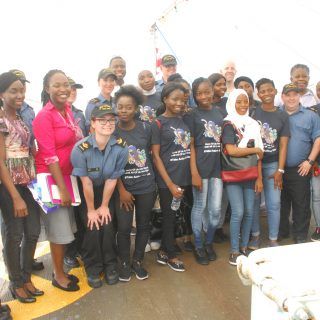
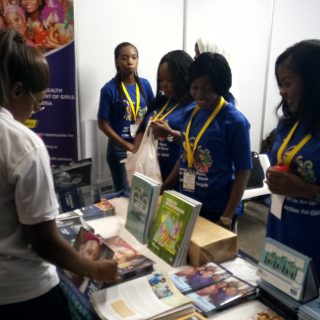
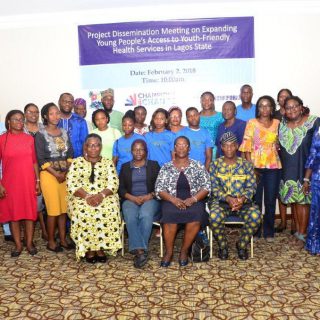
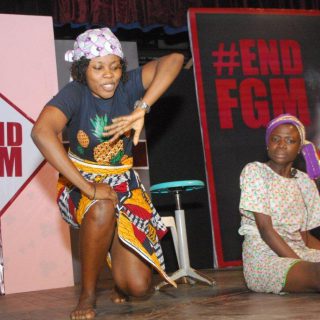
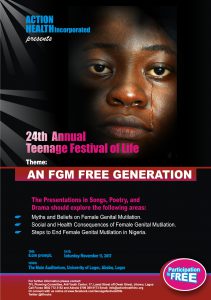
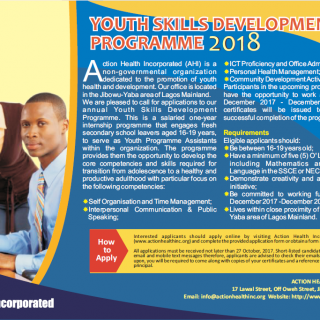
You must be logged in to post a comment.